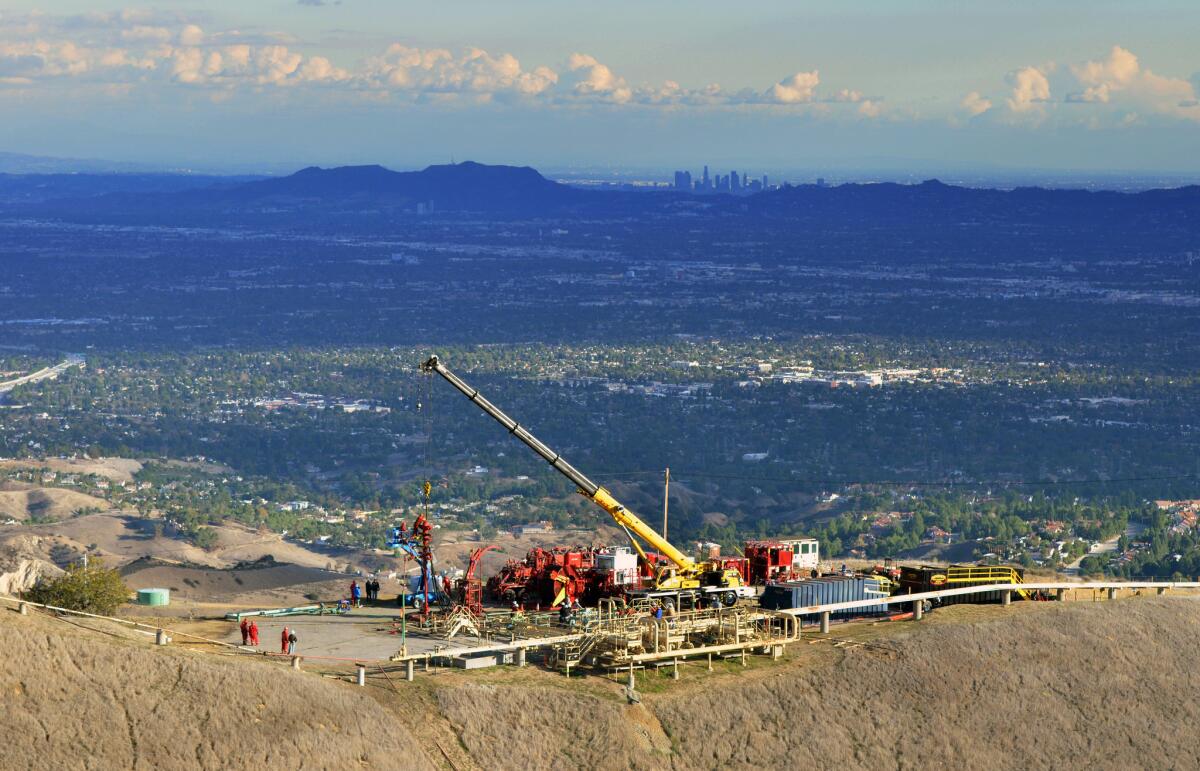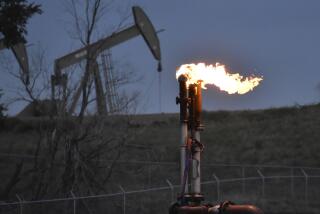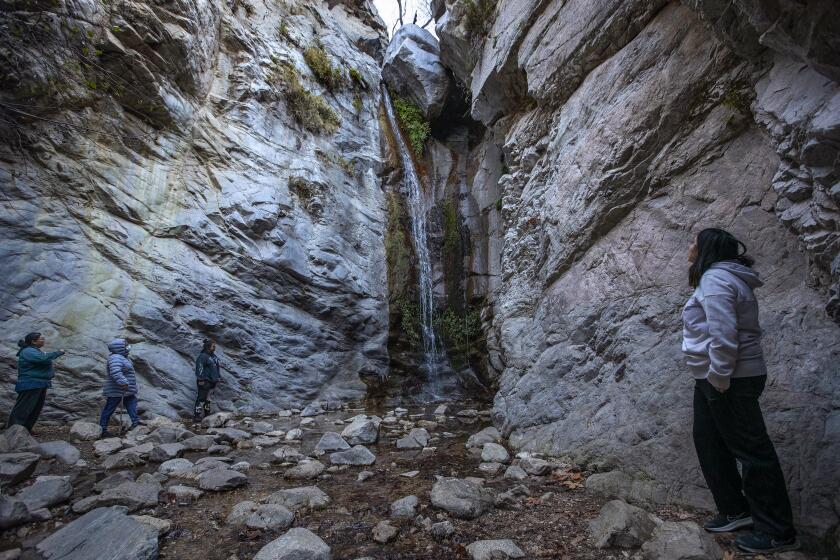Editorial: Porter Ranch gas leak is a wake-up call

This Nov. 3 photo provided by Southern California Gas Co. shows equipment being used as crews and technical experts try to stop the flow of natural gas leaking from a storage well at the utility’s Aliso Canyon facility.
More than 280 families have fled their homes in Porter Ranch in the San Fernando Valley, sickened by the smell of a voluminous natural gas leak from underground storage wells. The gas has been seeping from the ground for more than a month, yet Southern California Gas Co. says it might to take another three to four months to shut down the well, which goes 8,500 feet deep.
In the meantime, county health officials have ordered the company to temporarily relocate residents affected by the rotten egg smell of mercaptan, which is added to otherwise odorless natural gas to alert people to leaks, but which can cause nausea, headaches and dizziness. County and city officials have also called on Gov. Jerry Brown and state agencies to investigate the cause of the leak and how to expedite the repair.
But the damage goes far beyond the immediate neighbors. The leak has released a huge amount of methane, the primary component of natural gas and a potent heat-trapping compound that can hasten climate change. State air quality regulators estimate the leak is equivalent to 25% of the state’s daily methane emissions and has roughly the same effect as driving 160,000 cars for a year.
Such a major release is especially worrisome because in the short-term — say, 20 years — methane has 80 times the warming effect of carbon. Although it doesn’t remain in the atmosphere as long as carbon dioxide, methane captures heat far more effectively. It accounts for about 10% of all U.S. greenhouse gas emissions from human activities, with the major sources in California being cattle farms, landfills and leaky gas pipes.
Nevertheless, methane and other so-called short-lived climate pollutants also pose an enormous opportunity. Cutting these emissions can immediately slow global warming and reduce the impacts of climate change. That’s why Brown and state regulators have recently made cutting methane emissions a key focus. The California Public Utilities Commission and the Air Resources Board are both considering regulations intended to reduce the amount of methane emanating from natural gas pipelines and storage facilities. Likewise, SoCal Gas has a request pending before CPUC to raise rates to help upgrade its natural gas storage facilities.
Now, one natural gas leak from the company’s storage facility could reverse some of the emissions reductions that California has made in recent years as it has cut the state’s reliance on coal-fired power plants, invested in electric vehicles and installed solar panels. Just as the 2010 fatal explosion in San Bruno was a wake-up call on the need for greater safety oversight of natural gas pipelines, the Porter Ranch leak is a stark reminder that California must also step up its oversight of natural gas storage facilities. These operations can have a huge impact not only on neighbors but on the state’s ability to combat climate change.
Follow the Opinion section on Twitter @latimesopinion and Facebook
More to Read
A cure for the common opinion
Get thought-provoking perspectives with our weekly newsletter.
You may occasionally receive promotional content from the Los Angeles Times.






